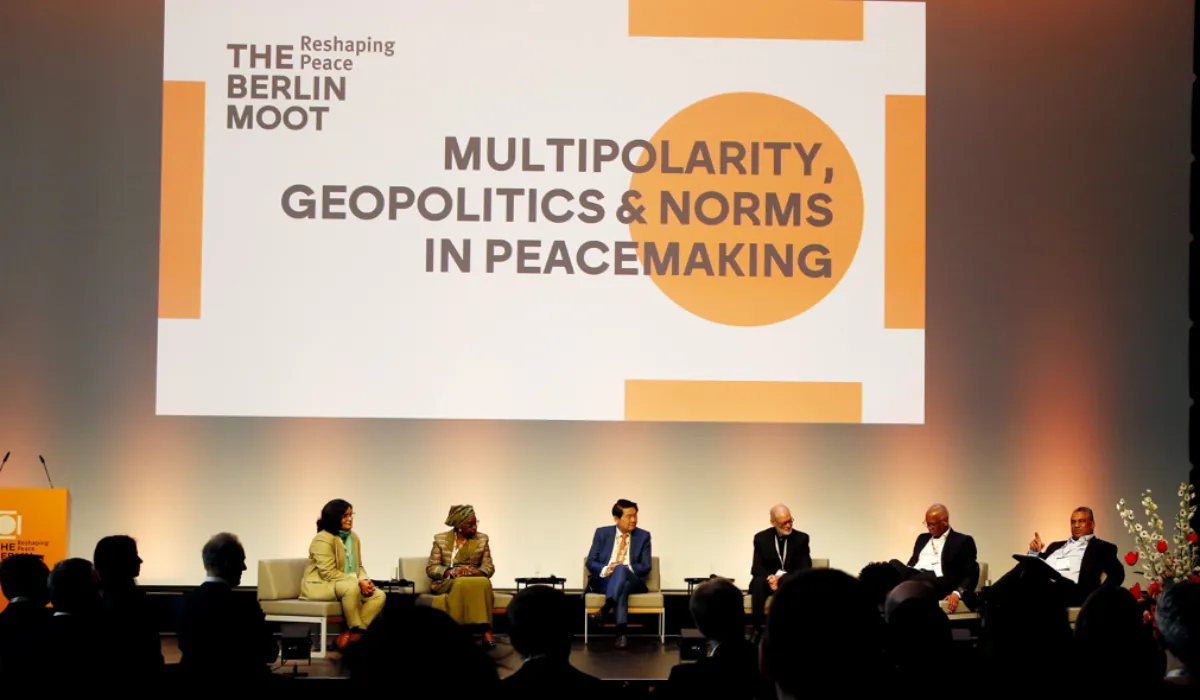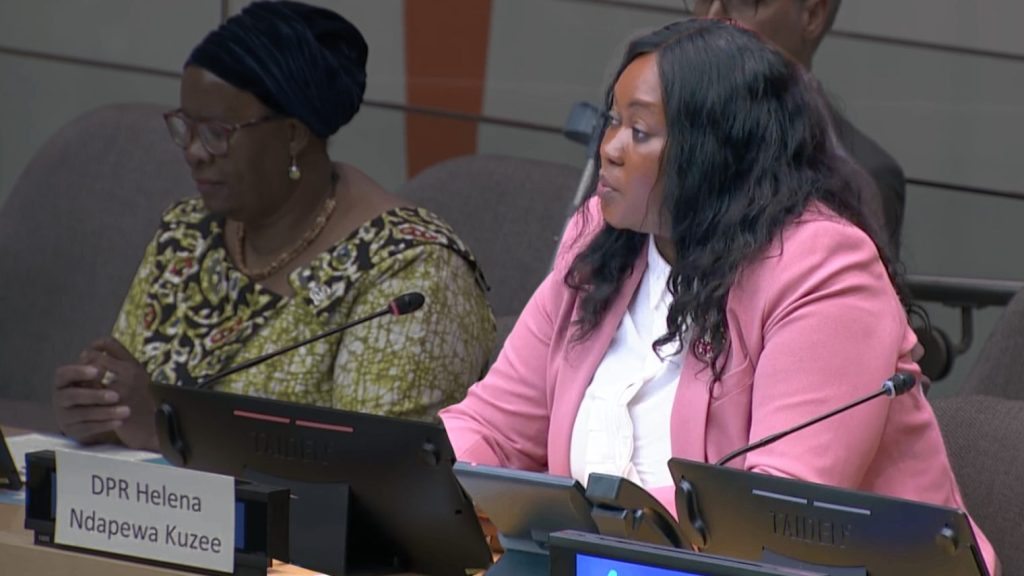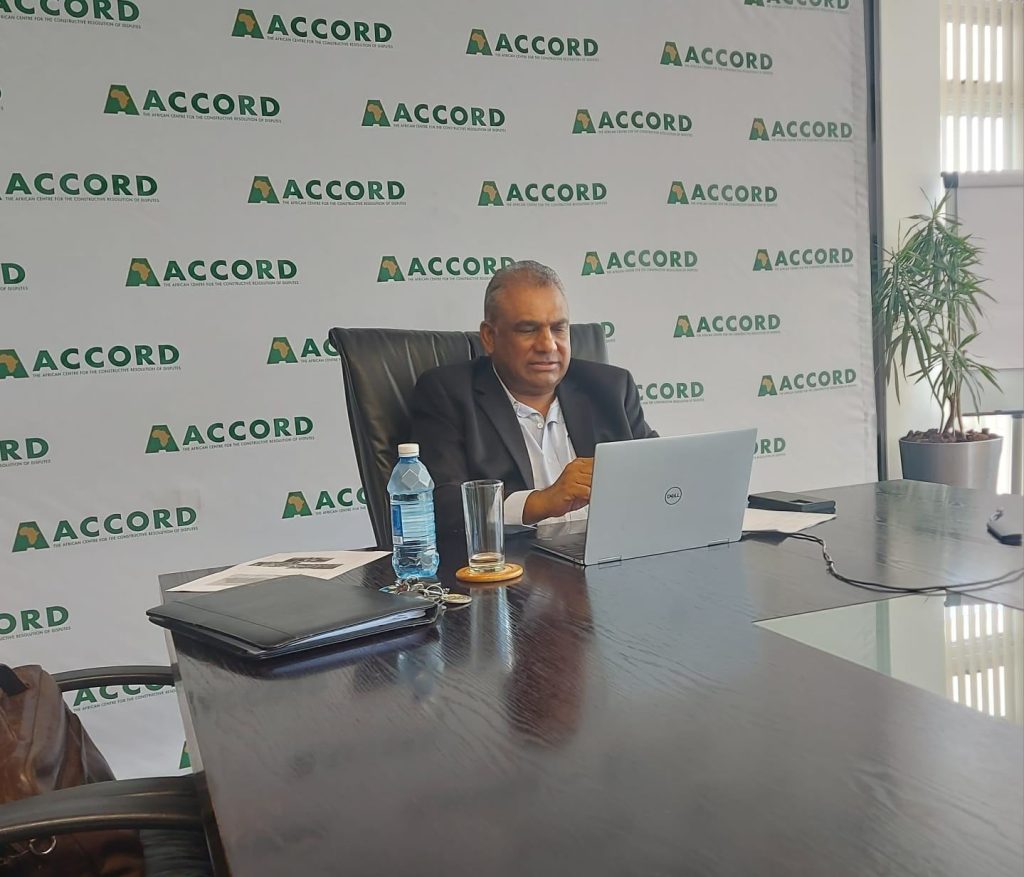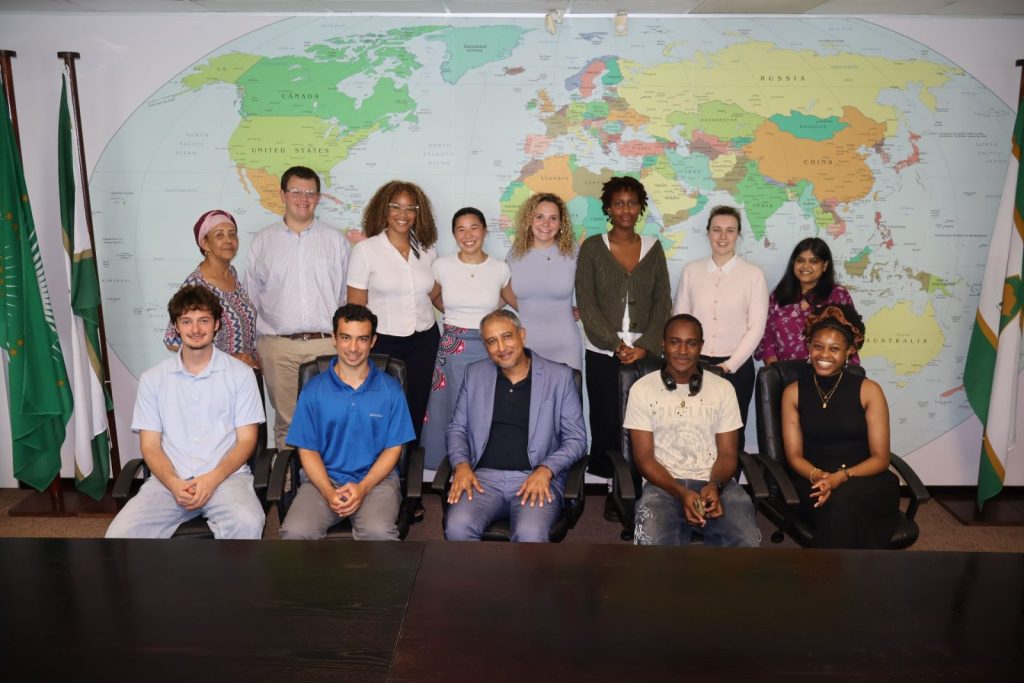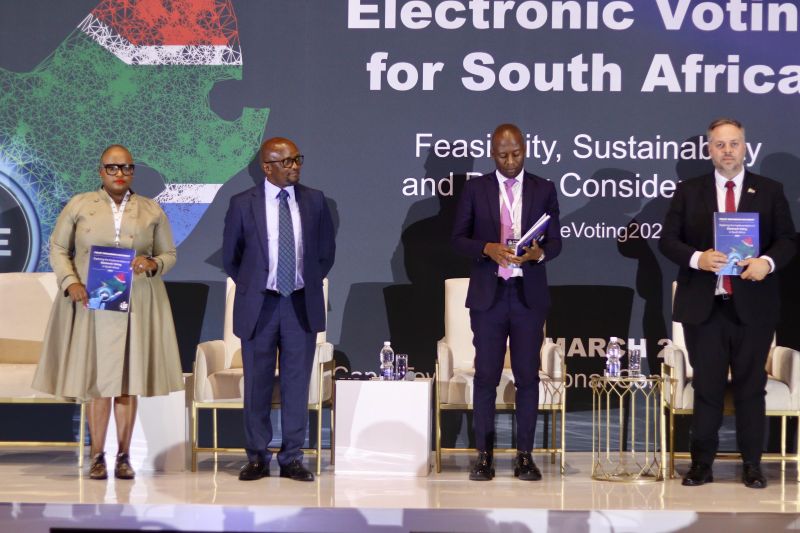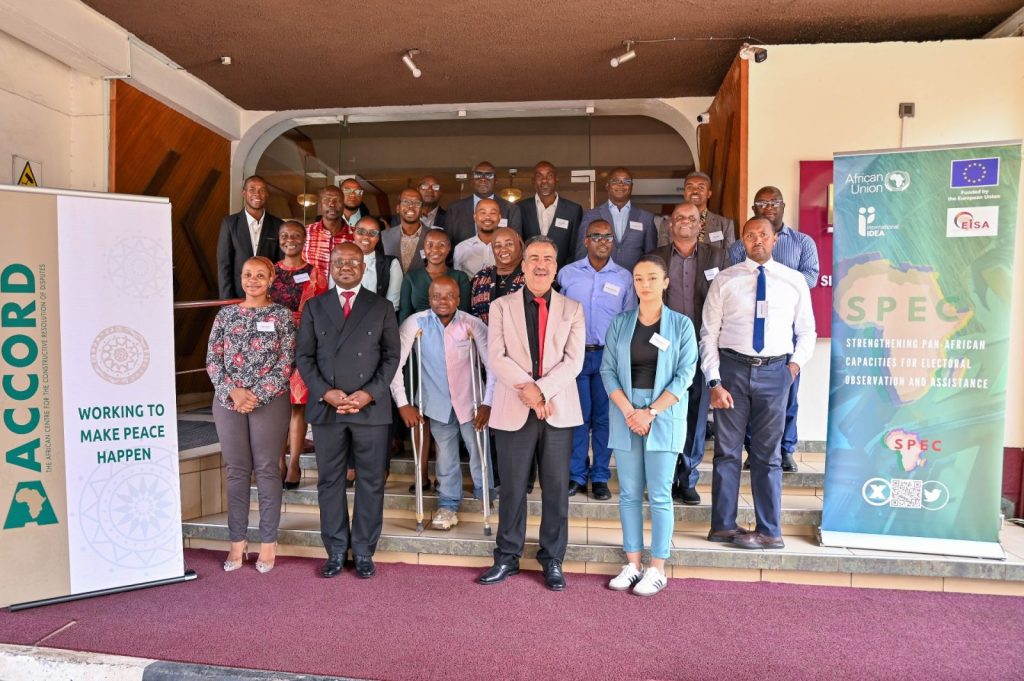On 17 and 18 April 2024, ACCORD participated in the Berlin Moot high level peace conference hosted by the Berghof Foundation in Berlin. The Moot brought together global experts from a variety of disciplines including peace and mediation practitioners, neuroscientists and the private sector to develop peacemaking tools that reflect the current complexity of war and conflict. Setting the tone for the Moot, in his opening remarks the Executive Director of the Berghof Foundation, Mr. Andrew Gilmour, said, “What unites us all here today is the need to end the current peak period of conflict, suffering and war crimes.” He underscored the expectation for tangible, actionable recommendations to emerge from the ensuing discussions, highlighting the shared commitment among attendees to catalyse meaningful change on the global stage.
On day one of the two-day Moot, ACCORD co-convened a panel of distinguished experts for a comprehensive discussion on the complexities of navigating multipolarity in global conflict resolution. Co-moderated by ACCORD’s Founder and Executive Director, Dr Vasu Gounden and a Senior Mediation Advisor from the Berghof Foundation, Ms Luxshi Vimalarajah, the dialogue brought together voices from diverse backgrounds to explore the challenges and opportunities inherent in addressing conflict amidst a shifting geopolitical landscape.
A recurring theme throughout the discussion was the African Union’s (AU’s) role in promoting peace and security on the Continent. While mechanisms and norms have been established, there remains a persistent challenge of dependency on external partners. The imperative to liberalise the Peace Fund and reduce reliance on external actors emerged as a priority for fostering indigenous solutions to African conflicts.
Proposals for reforming global institutions, such as the United Nations Security Council (UNSC), were also put forth, with suggestions ranging from rotating permanent members to granting non-permanent members veto power. Emphasis was placed on the need for inclusive governance structures to address contemporary challenges effectively. While acknowledging the strengths and weaknesses of diverse systems, speakers emphasised the imperative of dialogue and cooperation in promoting lasting peace on a global scale.

